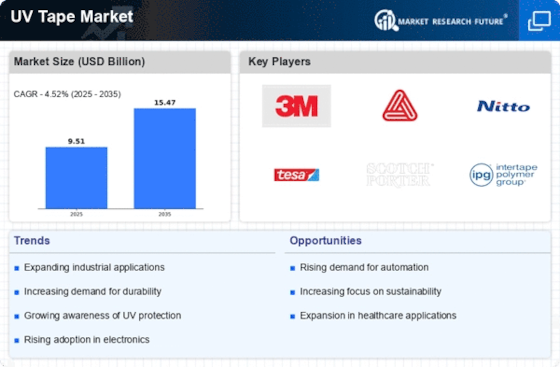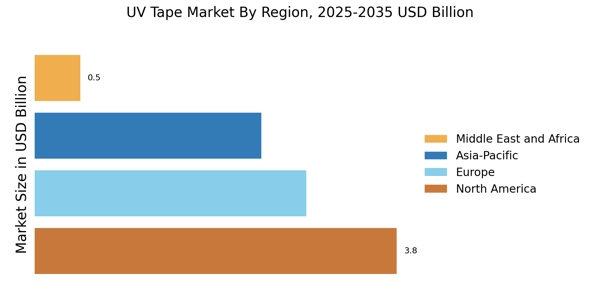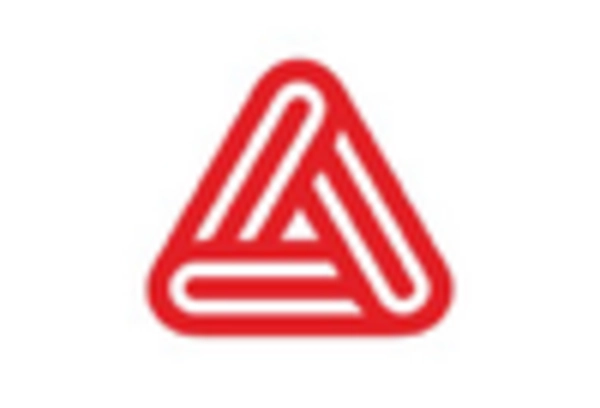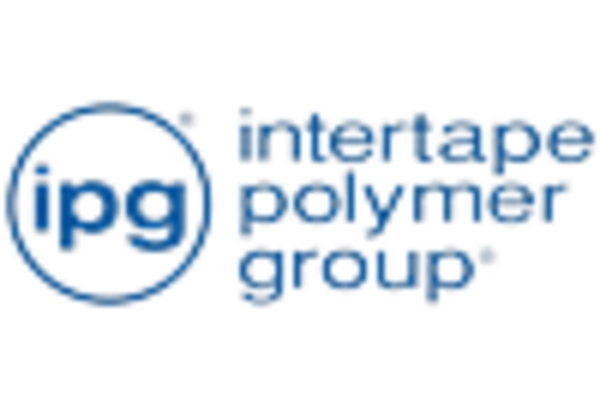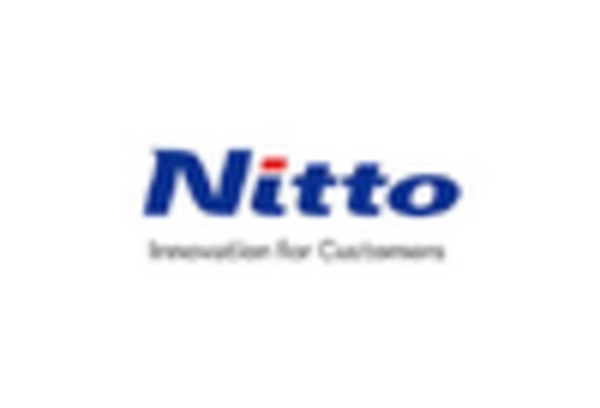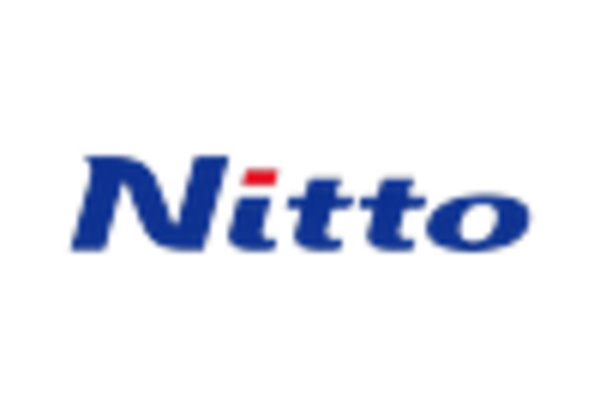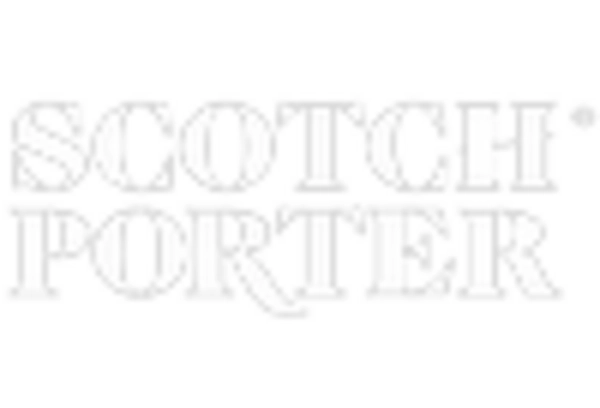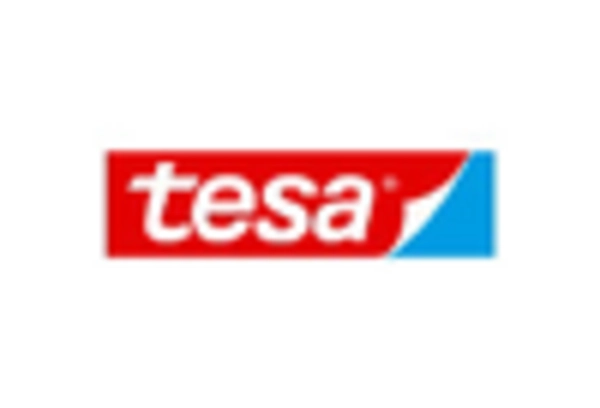Rising Demand in Electronics
The UV Tape Market experiences a notable surge in demand driven by the electronics sector. As electronic devices become increasingly compact and sophisticated, the need for reliable adhesive solutions grows. UV tapes, known for their quick curing properties and strong adhesion, are particularly favored in the assembly of electronic components. In 2025, the electronics segment is projected to account for a substantial share of the UV tape market, reflecting a trend towards miniaturization and enhanced performance. This demand is further fueled by the proliferation of smart devices and the Internet of Things, which require high-quality materials for assembly and protection. Consequently, manufacturers in the UV Tape Market are likely to innovate and expand their product offerings to cater to this burgeoning sector.
Growth in Automotive Applications
The automotive industry significantly influences the UV Tape Market, as manufacturers increasingly adopt advanced adhesive solutions for various applications. UV tapes are utilized in the assembly of components, interior fittings, and exterior trims, providing durability and resistance to environmental factors. The automotive sector's shift towards lightweight materials and electric vehicles is expected to bolster the demand for UV tapes, as these products offer the necessary performance characteristics. In 2025, the automotive segment is anticipated to represent a considerable portion of the overall market, driven by the need for efficient manufacturing processes and enhanced vehicle performance. This trend suggests that the UV Tape Market will continue to evolve, aligning with the automotive sector's innovations and sustainability goals.
Increased Focus on Sustainable Practices
Sustainability initiatives are becoming increasingly relevant within the UV Tape Market, as consumers and manufacturers alike prioritize eco-friendly products. The demand for sustainable adhesive solutions is rising, driven by regulatory pressures and consumer preferences for environmentally responsible materials. UV tapes, which can be formulated to reduce harmful emissions and enhance recyclability, are well-positioned to meet these demands. In 2025, the market for sustainable UV tapes is expected to grow, reflecting a broader trend towards green manufacturing practices. This shift may compel manufacturers to invest in research and development to create innovative products that align with sustainability goals. Consequently, the UV Tape Market is likely to witness a transformation as it adapts to the increasing emphasis on environmental stewardship.
Expansion in Medical Device Manufacturing
The UV Tape Market is poised for growth due to the increasing demand for medical devices and equipment. As the healthcare sector expands, the need for reliable and sterile adhesive solutions becomes paramount. UV tapes are particularly advantageous in medical applications, as they provide strong adhesion while maintaining cleanliness and compliance with regulatory standards. The market for medical devices is projected to grow at a compound annual growth rate of over 5% in the coming years, which will likely drive the demand for UV tapes. Manufacturers are expected to focus on developing specialized UV tapes that meet the stringent requirements of the medical industry, thereby enhancing their market presence. This trend indicates a promising future for the UV Tape Market as it aligns with the evolving needs of healthcare.
Technological Innovations in Adhesive Solutions
Technological advancements play a crucial role in shaping the UV Tape Market, as innovations in adhesive formulations and curing processes enhance product performance. The introduction of new UV-curable materials and improved application techniques is expected to drive market growth. In 2025, the market is likely to benefit from advancements that increase the efficiency and versatility of UV tapes, making them suitable for a wider range of applications. These innovations may include enhanced adhesion properties, faster curing times, and improved resistance to environmental factors. As manufacturers continue to invest in research and development, the UV Tape Market is poised for significant evolution, potentially leading to the emergence of new product categories and applications.


